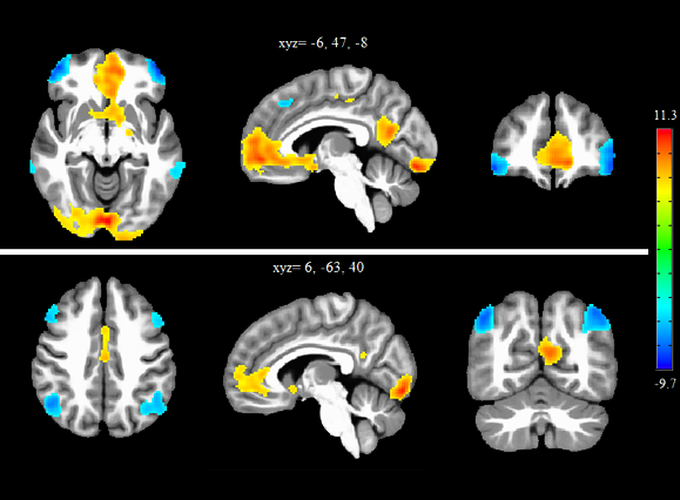Neural correlates of self-evaluation in relation to age and pubertal development in early adolescent girls
Abstract
Early adolescence is marked by puberty, and is also a time of flux in self-perception. However, there is limited research on the neural correlates of self-evaluation in relation to pubertal development. The current study examined relationships between neural activation during self-evaluation of social traits and maturation (age and pubertal development) in a community sample of female adolescents. Participants (N=143; age M=11.65, range=10.0–13.0) completed a functional MRI task in which they judged the self-descriptiveness of adjectives for prosocial, antisocial and social status-related traits. Pubertal development was based on self-report, and was also examined using morning salivary testosterone, dehydroepiandrosterone, and estradiol. Contrary to preregistered hypotheses, neither age nor pubertal development were related to neural activation during self-evaluation. We further examined whether activation in two regions-of-interest, the ventromedial prefrontal cortex (vmPFC) and perigenual anterior cingulate (pgACC), was associated with trial-level self-evaluative behavior. In line with preregistered hypotheses, higher vmPFC and pgACC activation during self-evaluation were both associated with a higher probability of endorsing negative adjectives, and a lower probability of endorsing positive adjectives. Future studies should examine neural trajectories of self-evaluation longitudinally, and investigate the predictive value of the neural correlates of self-evaluation for adolescent mental health.
Citation:
Barendse, M. E., Cosme, D., Flournoy, J. C., Vijayakumar, N., Cheng, T. W., Allen, N. B., & Pfeifer, J. H. (2020). Neural correlates of self-evaluation in relation to age and pubertal development in early adolescent girls. Developmental Cognitive Neuroscience, 100799.
